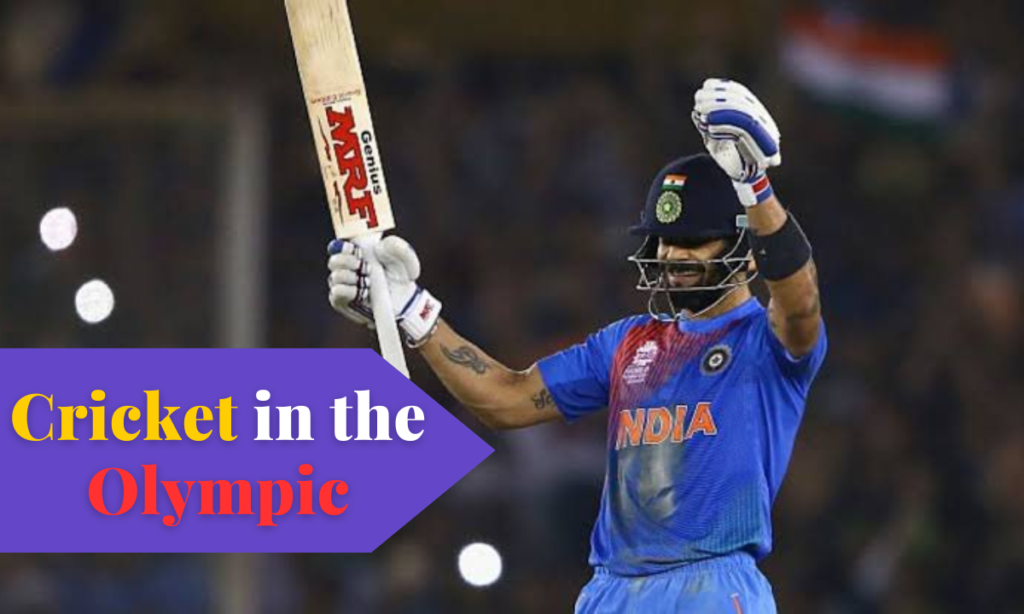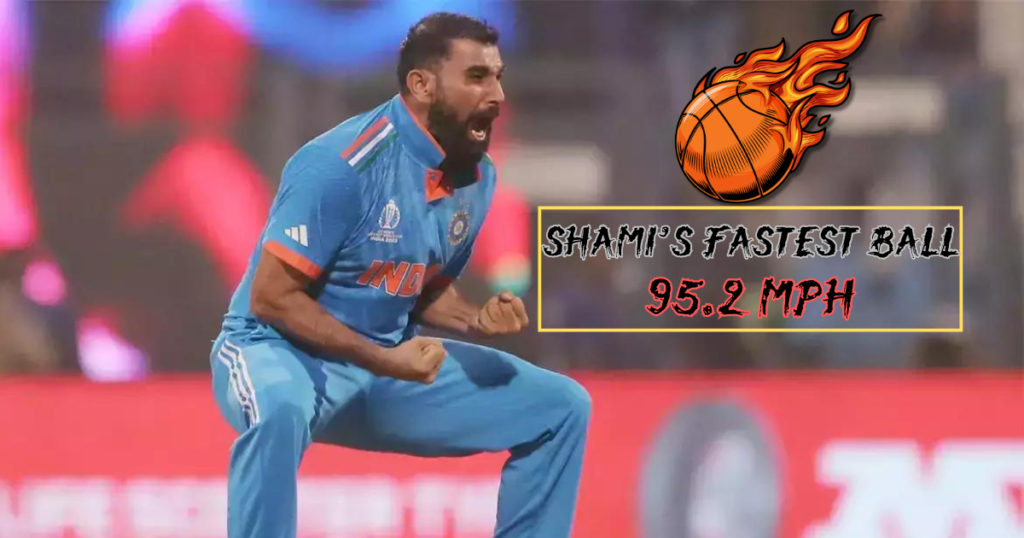In the world of sports, few things are as beloved and revered as cricket. With its time-honored traditions, passionate fans, and thrilling gameplay, cricket has become a global phenomenon. Yet, despite its popularity, cricket has been noticeably absent from the Olympic Games. But why? We will delve into the intriguing reasons behind the cricket’s exclusion from the world’s biggest sporting spectacle.
From its colonial roots to clashes with International Cricket Council (ICC) schedules, there are several factors at play. We will explore the historical context and shed light on the ongoing debates surrounding the inclusion of cricket in the Olympics. Fans and players alike have eagerly awaited the moment when cricket will make its grand entry into the Olympic Games. With its potential to bring together diverse nations and showcase the sport’s true spirit, the absence of cricket is a topic that deserves attention.
Join us as we unravel the complexities and unravel the mysteries behind why cricket is yet to grace the Olympic stage. Get ready to discover the untold story behind cricket’s absence and explore the possibilities for its future inclusion.
The history of cricket in the Olympic Games
Cricket’s journey in the Olympics is a short one, with only one official appearance so far. Here’s a quick rundown:
- 1896: Cricket was originally planned for the very first modern Olympics in Athens, but it got cancelled due to lack of entries.
- 1900: The only time cricket was part of the official Olympic program. Interestingly, it was just a single match between Great Britain and France (mostly composed of Englishmen living in France) at the Paris Games. Great Britain emerged victorious.
- Future: Cricket is set to make a comeback at the 2028 Los Angeles Olympics, hopefully with more participation than its debut.
Even though cricket hasn’t been a regular Olympic sport, it has been played in other multi-sport events like the Commonwealth Games and Asian Games.
Reasons for the absence of cricket in the Olympic Games
There are a couple of reasons why cricket hasn’t become a regular part of the Olympic Games, despite its massive popularity in some regions:
- Match Length: A major hurdle is the duration of a cricket match. Test matches, the most prestigious form of the game, can stretch for five days, which is a significant time commitment for the Olympics with its packed schedule and focus on showcasing multiple sports.
- Global Popularity: While cricket boasts a huge fanbase in certain areas, particularly the UK, India, Australia, and parts of the Caribbean, its reach isn’t as universal as sports like football or athletics. The International Olympic Committee (IOC) might be hesitant to dedicate valuable space in the Games for a sport that wouldn’t generate widespread interest.
- Logistics: The number of teams that could competitively participate in Olympic cricket is also a factor. Many countries lack the infrastructure and resources to develop strong national teams, which could lead to an unbalanced competition.
- Scheduling: Finding a window within the busy Olympic calendar that wouldn’t disrupt other sports or create scheduling conflicts for athletes is another challenge.
Challenges and controversies surrounding cricket’s inclusion in the Olympic Games
Cricket’s potential return to the Olympics in 2028 isn’t without its challenges and controversies. Here’s a breakdown of some key issues:
- Length vs. Scheduling: The biggest hurdle remains match duration. Fitting a five-day Test match into the Olympics is unrealistic. Shorter formats like T20s are a possibility, but some argue they don’t capture the true essence of cricket. Finding a format that balances prestige with the Olympic schedule is a challenge.
- Global Appeal vs. Limited Participation: While cricket has a passionate fanbase, limited global reach compared to other Olympic sports raises concerns. The IOC might prioritize sports that generate wider interest. Additionally, logistical challenges exist. Many countries lack the infrastructure to support a competitive team, potentially creating an unbalanced tournament.
- Financial and Political Concerns: The financial power of cricket boards, particularly the Board of Control for Cricket in India (BCCI), is a point of contention. Some fear the BCCI might prioritize its own tournaments (like the IPL) over the Olympics, impacting player availability and team selection. Additionally, political tensions between cricket-playing nations could create complications during the Games.
- Anti-Doping Issues: The International Cricket Council (ICC) has faced criticism in the past for its adherence to anti-doping regulations. Inclusion in the Olympics might put pressure on the ICC to adopt stricter anti-doping measures, which some see as a positive step but others view as a potential disruption to the current system.
These are just some of the challenges and controversies surrounding cricket’s potential return to the Olympics. Only time will tell if the 2028 Games can successfully overcome these hurdles and reintroduce cricket to the Olympic stage.
The impact of cricket’s absence on the growth of the sport
The absence of cricket from the regular Olympic schedule has both positive and negative impacts on the sport’s growth:

Negative Impacts:
- Limited Global Exposure: Cricket missing the Olympics means a reduced opportunity to showcase itself to a massive worldwide audience. This could hinder its ability to attract new fans and sponsors from regions where cricket isn’t as popular.
- Reduced Funding and Investment: Without Olympic prestige, cricket might struggle to compete for funding and investment compared to sports that are featured in the Games. This could limit resources for development programs and grassroots initiatives in new territories.
- Lack of Olympic Role Models: The Olympics inspire young athletes around the world. Without cricket being a part of it, there’s a missed chance for aspiring cricketers to have Olympic heroes and dream of competing on that grand stage. This inspirational aspect can be a powerful motivator for growth.
Positive Impacts:
- Focus on Established Leagues: Cricket’s absence from the Olympics allows established tournaments like the ICC World Cup, Ashes series, and domestic leagues like the IPL to retain the spotlight. This can lead to increased focus on these marquee events, potentially boosting their popularity and revenue.
- Maintains Independence: Cricket’s governance structure remains independent from the IOC, potentially giving cricket boards more autonomy over scheduling, formats, and revenue generation. This can be beneficial for tailoring the sport to the specific needs and preferences of its core fanbase.
- Growth in Existing Markets: The lack of Olympics might not be a major hindrance in regions where cricket is already well-established. Cricket boards in these areas can focus their resources on developing domestic talent and fanbases without worrying about Olympic qualification.
Overall, the impact of cricket’s absence in the Olympics is a mixed bag. While it creates limitations for global expansion, it also allows established cricket hubs to flourish on their own terms. The upcoming inclusion of cricket in the 2028 Olympics will be an interesting experiment to see if the sport can navigate these challenges and benefits.
Efforts to reinstate cricket in the Olympic Games
There have been several efforts to bring cricket back to the Olympic Games after its lone appearance in 1900. Here’s a glimpse into these attempts:
- Lobbying by Cricket Authorities: The International Cricket Council (ICC) has actively campaigned for cricket’s re-inclusion. They’ve proposed shorter formats like Twenty20 (T20) matches to address concerns about scheduling conflicts within the packed Olympic calendar.
- Support from Hosting Nations: Countries with strong cricketing traditions, like England and Australia, have also lobbied for the sport’s return, believing it would boost viewership and generate interest in the Games.
- Overcoming Obstacles: Addressing the challenges like limited global participation, infrastructure disparity among cricket-playing nations, and ensuring adherence to stricter anti-doping regulations have been key areas of focus for those advocating cricket’s return.
- The 2028 Los Angeles Olympics: The upcoming 2028 Los Angeles Olympics marks a significant development. Cricket is set to be reintroduced after a long absence, and its success there could pave the way for more permanent inclusion in future Games.
It’s important to note that there are still reservations from some quarters within the International Olympic Committee (IOC) regarding cricket’s suitability for the Olympics. However, the ongoing efforts and the upcoming experiment in 2028 could potentially lead to cricket becoming a regular feature on the Olympic stage.
Success stories of other sports in the Olympic Games
The Olympics have a rich history of propelling sports into the global spotlight. Here are a few examples of sports that thrived after their inclusion:
After a wait of more than a century, our beloved sport is back on the Olympic stage at @LA28. This marks the dawn of a new era for cricket as it will be a golden opportunity to foster inclusivity and showcase new talent from emerging cricketing nations. A start of something truly… https://t.co/Y4o2Zp5gl7
— Sachin Tendulkar (@sachin_rt) October 16, 2023
- Taekwondo: This Korean martial art gained international recognition after becoming an official Olympic sport in 1988 (demonstration sport) and then a full medal sport in 2000. The fast-paced and visually striking nature of taekwondo tournaments attracted a new generation of fans worldwide, leading to a surge in participation and international competitions.
- Basketball: While already established in North America, basketball’s inclusion in the 1936 Olympics significantly boosted its global popularity. The fast-paced action and emphasis on teamwork resonated with audiences worldwide. The sport’s international profile continued to rise with the creation of the NBA and FIBA (International Basketball Federation), solidifying basketball as a major global sport.
- Women’s Gymnastics: The inclusion of women’s gymnastics in the 1928 Olympics opened doors for female athletes and showcased the artistry and athleticism of the sport. Gymnasts like Olga Korbut (Soviet Union) and Nadia Comăneci (Romania) became household names, inspiring young girls around the world to take up the sport.
- Beach Volleyball: Originally a recreational activity, beach volleyball became an Olympic sport in 1996. The energetic and fast-paced beach setting, coupled with the sport’s accessibility (compared to traditional volleyball requiring a gym), contributed to its immense popularity. This led to the establishment of professional beach volleyball tours and increased global participation.
- Skateboarding: The inclusion of skateboarding in the 2020 Tokyo Olympics marked a new chapter. It introduced a younger demographic to the Games and showcased the sport’s creativity, athleticism, and growing global fanbase. Skateboarding participation has seen a rise since its Olympic debut, with youngsters finding inspiration in these new Olympic heroes.
These are just a few examples. The Olympics continue to be a powerful platform for promoting sports and inspiring future generations of athletes. The 2028 Games with Cricket’s return will be another interesting case study to see if the sport can find similar success on the Olympic stage.
Potential benefits of cricket’s inclusion in the Olympic Games
Cricket’s inclusion in the 2028 Los Angeles Olympics has the potential to bring a number of benefits to the sport, both globally and for the Games themselves. Here’s a breakdown of some key possibilities:
Increased Global Exposure: The Olympics boast a massive worldwide audience. Cricket’s inclusion would introduce the sport to a new generation of viewers who might not have been familiar with it before. This could lead to a significant rise in global interest, attracting new fans and potential sponsors from regions where cricket isn’t yet a mainstream sport.
Growth in New Markets: The increased exposure could spark a rise in cricket participation in new territories. International cricket boards could leverage the Olympic spotlight to launch development programs and initiatives to cultivate new fan bases and playing talent in these regions.
Boost in Funding and Investment: The prestige associated with the Olympics could attract more funding and investment towards cricket. This could benefit grassroots programs, infrastructure development in new cricketing nations, and potentially lead to higher salaries and professionalism for players around the world.
Inspiration for Aspiring Cricketers: Inclusion in the Olympics would give aspiring young cricketers a new pinnacle to strive for. The chance to compete on the Olympic stage and become an Olympic medalist could inspire a new wave of talent and dedication to the sport.
Enhanced Status and Recognition: Cricket’s inclusion would elevate its status within the international sporting landscape. Being an Olympic sport would place it alongside other established sports, potentially leading to greater recognition and respect for the sport and its athletes.
Benefits for the Olympics: Cricket’s return could also bring advantages to the Games themselves. Here are a couple of ways:
- Increased Viewership: Cricket’s massive fanbase in South Asia, particularly India, could translate to a significant rise in viewership for the Olympics, especially in those regions. This could benefit broadcasters, sponsors, and the overall reach of the Games.
- Culturally Diverse Audience: Cricket’s inclusion has the potential to attract a more culturally diverse audience to the Olympics. This could broaden the appeal of the Games and foster a more inclusive sporting environment.
Of course, there are challenges to overcome, as discussed previously. But the potential benefits of cricket’s return to the Olympics are significant, and the 2028 Games will be a fascinating test case to see if the sport can thrive on this grand international stage.
Criticisms against cricket’s inclusion in the Olympic Games
While there’s excitement about cricket’s return to the Olympics in 2028, there are also criticisms to consider. Here’s a breakdown of some key arguments against its inclusion:
- Limited Global Appeal: Cricket, unlike sports like football or athletics, has a strong fanbase in certain regions, particularly the Indian subcontinent, Australia, and England. Critics argue that the lack of universality might not justify a spot in the already jam-packed Olympic schedule.
- Disparity in Participation: The competition might be unbalanced due to the uneven development of cricket across the globe. Many countries lack the infrastructure and resources to field strong national teams, potentially leading to predictable outcomes and a lack of suspense.
- Scheduling Conflicts: Fitting cricket into the Olympics is a logistical challenge. Test matches are too long, while shorter formats like T20s might not capture the essence of the sport for traditional fans. Finding a balanced format that respects cricketing tradition yet adheres to the Olympic schedule is a hurdle.
- Financial and Political Concerns: The financial clout of cricket boards, particularly the Board of Control for Cricket in India (BCCI), raises concerns. Critics fear the BCCI might prioritize its own lucrative tournaments over the Olympics, impacting player availability and team selection. Additionally, political tensions between cricket-playing nations could cast a shadow on the Games’ spirit of unity.
- Doping Concerns: The International Cricket Council (ICC) has faced criticism regarding its anti-doping regulations. Inclusion in the Olympics might necessitate stricter measures, which some see as positive but others view as a potential disruption to the current system.
These are some of the criticisms against cricket’s inclusion. The success of cricket in the 2028 Olympics will depend on addressing these concerns and leveraging the potential benefits the sport can bring to the Games.
This year’s ICC Men’s T20 World Cup features some exciting newcomers! Discover all 20 teams and see who might be the dark horse contenders in my article: “ICC Men’s T20 World Cup 2024: Unveiling the Participating Teams.“
Conclusion
Cricket’s return to the Olympic stage in 2028 marks a significant moment for the sport. There’s a lot of anticipation surrounding this comeback, but it’s not without its challenges and debates.
Potential Benefits:
- Increased global exposure for cricket, attracting new fans and sponsors.
- Growth in new cricketing markets, boosting participation and talent development.
- Enhanced status and recognition for cricket within the international sporting scene.
- Inspiration for aspiring cricketers with the chance to become Olympic medalists.
- Increased viewership for the Olympics, particularly from cricket’s passionate fanbase in South Asia.
- A more culturally diverse audience for the Games.
Challenges and Criticisms:
- Limited global appeal compared to some other Olympic sports.
- Uneven development of cricket across countries, potentially leading to unbalanced competition.
- Difficulty in fitting cricket into the Olympic schedule due to match length and format considerations.
- Concerns about the influence of powerful cricket boards and potential political tensions.
- The need for stricter anti-doping measures, which might disrupt the current system.
The upcoming Olympics will be a crucial test case. How cricket is received and integrated into the Games will determine its future Olympic prospects. It has the potential to be a success story, attracting a wider audience and inspiring a new generation of cricketers globally. But it will also need to address the challenges and navigate the complexities of the Olympic landscape.







